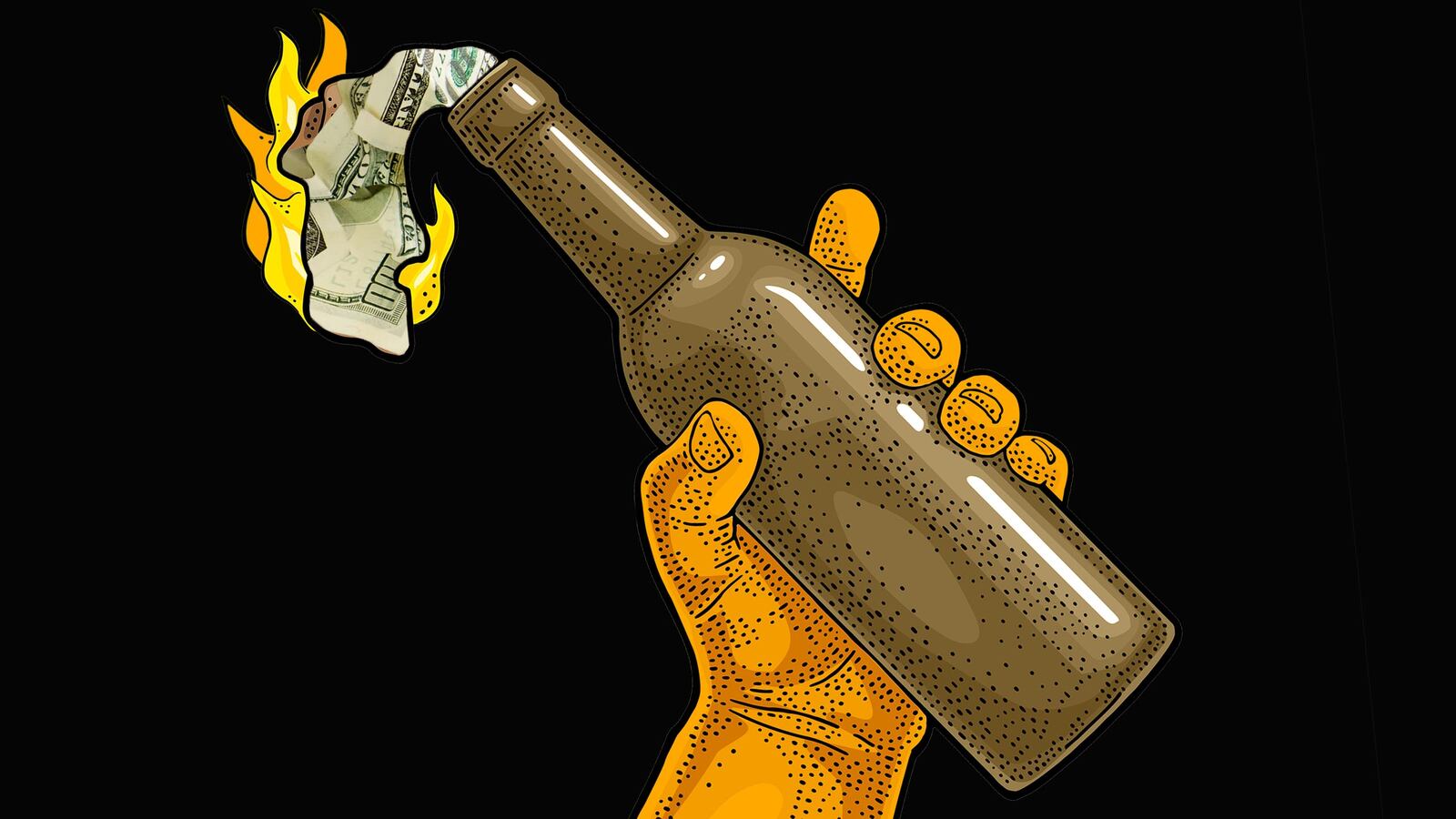What does it take to get a whiskey drinker seriously interested in global economics? Talk of a bourbon tariff. Add in the threat of a price hike for aluminum beer cans, and you’re talking about a real drinking crisis.
Here’s what’s keeping me up at night: President Donald Trump surprised the nation on March 1 by saying he was instituting tariffs on the importation on steel (25 percent) and on aluminum (10 percent). He tweeted that morning: “Our Steel and Aluminum industries (and many others) have been decimated by decades of unfair trade and bad policy with countries from around the world.” I took this in stride, figuring a wait-and-see policy was best given that he might change his change mind.
But economists were more pessimistic predicting that these tariffs would set off a trade war. Trump then penned this encouraging tweet the following day: “When a country (USA) is losing many billions of dollars on trade with virtually every country it does business with, trade wars are good, and easy to win.” That statement may have dropped jaws around the world, but really, it’s so complicated, how could one know?
Well, Jean-Claude Juncker, the head of the European Commission, warned that the EU might have to retaliate by instituting tariffs of its own on American products, including Harley-Davidson motorcycles, Levi jeans, and, you guessed it, bourbon. That got my attention and I decided I’d better look into this trade war thing.
So I called Dr. Antony Davies, who teaches economics at Duquesne University in Pittsburgh. (I’d read his writings on another alcohol issue, Pennsylvania’s state liquor monopoly.) Davies is not a fan of the president’s plan. “Like military wars, trade wars are bad for both parties,” he noted. “I’m opposed to all tariffs. A tariff is a tax, but it is a particularly distortionary tax because it applies to some products but not others based on both the type of product and the product’s origin. A distortionary tax causes people to behave in ways they would not otherwise voluntarily behave.”
Bourbon makers weren’t happy about this turn of events either. The Kentucky Distillers Association issued this statement: “U.S. and EU spirits exporters have enjoyed duty-free access to each other’s markets for more than two decades, which has...resulted in increased exports, jobs and consumer choice. Any efforts to impose retaliatory tariffs on U.S. spirits exports to the EU will jeopardize this long-standing partnership, harm consumers through higher prices and more limited product availability, and significantly threaten...industry jobs and...billions in capital investment.”
Why are they so upset about a potential retaliatory tariff? In 2017, according to International Trade Commission, American spirits brands exported $789 million worth of liquor to the EU, which is up more than 20-percent over the previous year. Bourbon made up nearly a quarter of last year’s sales, as global demand for the whiskey has skyrocketed.
Paul Varga, who is CEO of Brown-Forman, which owns Jack Daniel’s, Woodford Reserve and Old Forester among other brands, noted on an earnings call on March 7 that his company would suffer if these tariffs were enacted. “...the irony, I feel, is that a company like Brown-Forman could be an unfortunate and unintended victim of a policy which, in part, is aimed at promoting something which Brown-Forman is a stellar example of—a committed long-term American manufacturing company. ...if this were to come to fruition it would be obviously kind of [a] negative thing for our particular company.” A mastery of understatement, there.
Beer producers would also be directly affected. With about 55-percent of total U.S. beer production packaged in aluminum cans (and a rapidly-growing 20-percent of craft beer), a 10-percent tariff on foreign aluminum will affect the bottom line of brewers, and the wallets of drinkers.
It might even get worse, as noted in a public letter to the Commerce Secretary from beer and aluminum industry groups. “We have major concerns about how the 10-percent tariff could cause price-gouging within aluminum markets…since the tariffs were announced, the MWP [Midwest Premium Price for aluminum] has spiked from 9 cents to 19 cents per pound, a more than double increase.”
And if you prefer craft beer, consider this, from Bart Watson, chief economist for the Brewers Association. “For small brewers, I think the steel tariffs are equally if not more concerning. Craft is still 40-percent draught production, either going into steel kegs or coming directly from steel brite tanks [in brewpubs]. Steel brewhouses, fermenters and brites are the key components of any brewery expansion. Depending on what the final form of steel tariffs look like, they could...lead to price increases.” With the number of Chinese steel fabricators who displayed goods at the last Craft Brewers Conference trade show in November, that seems pretty likely.
It’s not just brewers that will potentially take a hit. I talked to a small distiller who has to expand; he’s looking at $50,000 in new tariff expenses when the tanks he ordered six months ago are actually delivered. And if that EU bourbon tariff goes through? Well, maybe, he’ll focus more on rye whiskey.
This situation is starting to sound grim. So I asked Davies, what the probability of a trade war really is, because it looks like my drinking buddies could be on the front lines! “Probably low,” he assured me. “It is likely political grandstanding.” However, if they did go through, “the EU would be better off if the U.S. did not impose tariffs on EU products. But the EU would be better off living with those tariffs than countering with its own tariffs.”
Maybe but it’s not just economics, it’s personal. Why did Juncker specifically mention tariffs on Harley-Davidsons, Levis, and bourbon? The companies that make those products are based in the home turfs, respectively, of House Speaker Paul Ryan, House Minority Leader Nancy Pelosi, and Senate Majority Leader Mitch McConnell.
Still, while a bourbon tariff would not be good for the industry, for the American drinker it might actually mean lower prices, or at least better supply, with less product going to foreign markets. And as the Distilled Spirits Council of America’s statement on the situation said, “It’s premature to comment on any retaliation by our trade partners which has not yet been specified.”
So “wait and see” is the policy I’m sticking with for now. As an old friend of mine used to say, worrying about something that hasn’t happened yet is like paying interest on a debt you may never owe. Relax, let’s have a drink...while we can still afford it.






